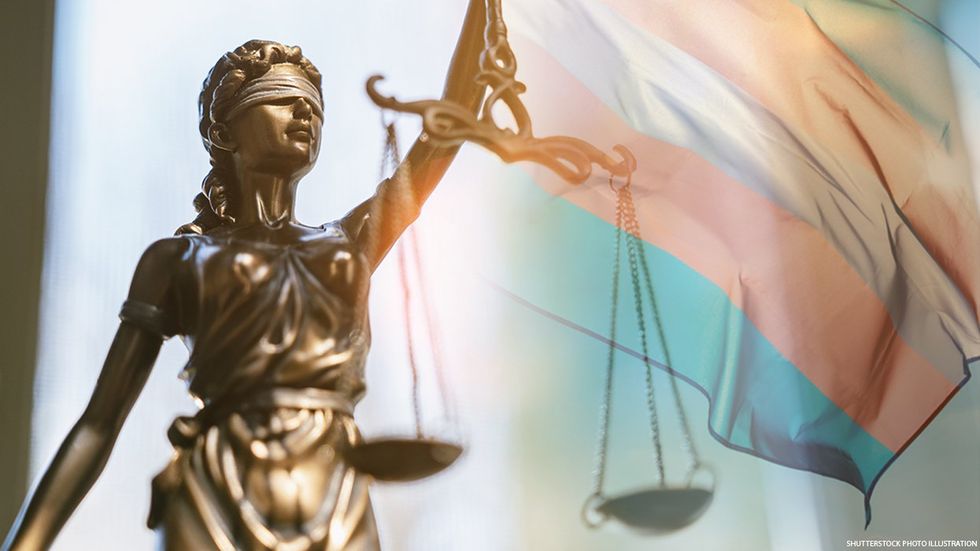Transgender and nonbinary people seeking parole in California often experience misgendering, which is contrary to state law, and encounter other barriers in the process, according to a new study.
The study, “The California Parole Board’s Treatment of Transgender Individuals,” is from the Williams Institute at UCLA School of Law and the Social Justice Legal Foundation. Researchers looked at transcripts of 42 California Department of Corrections and Rehabilitation parole hearings involving trans and nonbinary people between January 1, 2021, and February 28, 2022.
California’s Transgender, Respect, Agency, and Dignity Act went into effect in January 2021. It requires, among other things, that the corrections department use proper gender pronouns and honorifics for trans and nonbinary people in custody.
Despite this, the researchers found that 43 percent of parole hearings for trans and nonbinary people included misgendering and/or insensitive comments by parole commissioners and sometimes even their own lawyers. “For instance, one nonbinary 44-year-old individual asked to be addressed by name, rather than any pronoun, but the commissioners pushed the parole seeker to choose a pronoun,” says a Williams Institute press release. “On another occasion, a commissioner questioned whether a parole seeker would remain sober because the ‘LGBTQ community has big parties.’”
This treatment, however, did not necessarily affect the outcome of the hearings. “It is not possible to assess the impact that insensitive and biased statements and misused pronouns may have had on parole outcomes because many other factors are important determinants (e.g., housing plan),” the study says. “Overall, not considering the impact of other factors, individuals who received insensitive or biased comments or faced misgendering from parole commissioners had better outcomes in their hearings than those who did not.”
Overall, about one-third of trans and nonbinary parole seekers were granted parole in the time period studied, about the same rate as the general population of parole seekers.
But an emphasis on housing plans may work against trans and nonbinary parole seekers, researchers point out. “A comprehensible housing plan seems to have improved an individual’s chance of being granted parole: not considering other factors that also determine parole decisions, 10 of 18 (56%) people with a housing plan were granted parole compared with only 3 out of 24 (13%) individuals who did not have an explicit housing plan. This suggests that, although finding appropriate transitional housing is extraordinarily challenging for transgender individuals, parole commissioners rely heavily on this factor in their parole determination,” the study explains.
The challenges in finding transitional housing include the fact that it is gender-segregated and that some facilities don’t accept trans people at all, the authors note, citing previous research conducted in San Francisco. They suggest that “commissioners should deemphasize the factor of having secured housing and, instead, work with transgender parole seekers to identify proper placement in the community after parole has been granted.” The corrections department also “should ensure that its contracted transitional housing providers offer inclusive services to transgender, nonbinary and intersex individuals,” the authors add.
“Finding appropriate transitional housing is extraordinarily challenging for transgender individuals,” study author Ilan H. Meyer, distinguished senior scholar of public policy at the Williams Institute, said in the press release. “Often transitional housing is gender segregated and many facilities simply do not accept transgender individuals despite California law that bars discrimination in housing. Excluding transgender individuals from this already scarce resource only increases the already steep challenges they face to re-entry.”
“This brief provides an important first glimpse into the treatment of transgender and nonbinary individuals seeking parole in California, but more data is needed,” added lead author Claire Simonich, a public interest attorney who was a senior attorney at the Social Justice Legal Foundation at the time the research was conducted. “The California Parole Board should develop protocols to assess the experiences and monitor the treatment of transgender, nonbinary, and intersex parole seekers.”














































































